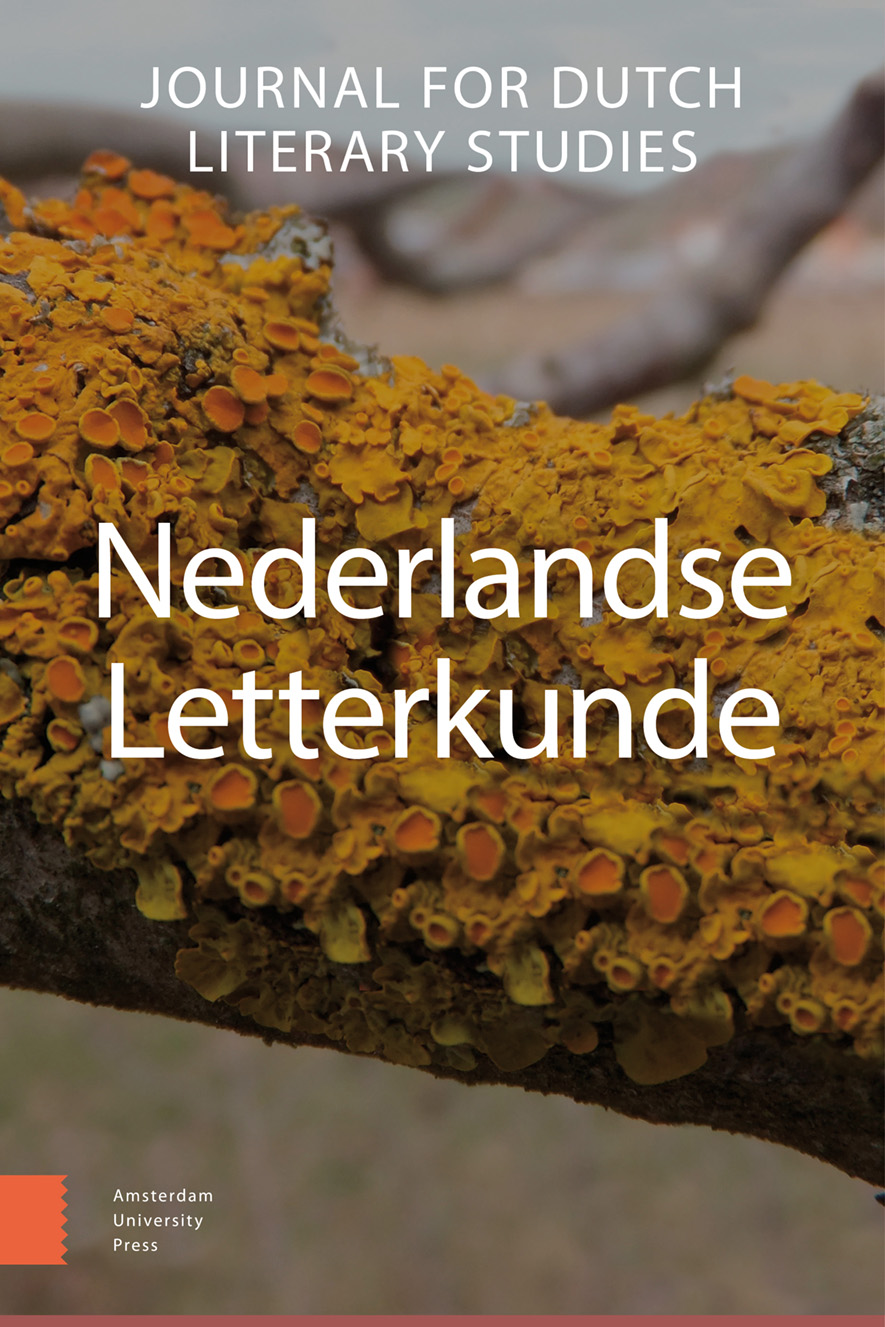- Home
- A-Z Publications
- Nederlandse Letterkunde
- Previous Issues
- Volume 27, Issue 2, 2022
Nederlandse Letterkunde - Volume 27, Issue 2, 2022
Volume 27, Issue 2, 2022
Language:
Dutch
-
-
oa Geslachtelijke geschiedschrijving? Een distant reading van de evaluatie van mannelijke en vrouwelijke auteurs in Nederlandse literatuurgeschiedenissen
More LessAuthors: Lieke van Deinsen & Freek Van de VeldeAbstract Opinion pieces in newspapers and magazines and scholarly contributions alike are rife with indignant voices addressing the neglect or underestimation of women in high literature. While recent years have witnessed an upsurge in empirical, quantitative underpinning of the assumptions underlying this accusatory discourse, much of the extant literary research uses methods of close reading and critical disco Read More
-
-
-
oa Achter de schermen van het recht
More LessAuthors: Ralf Grüttemeier, Lotte van den Bosch & Lennart BartschAbstract Literary trials are hard to examine due to the usually very limited range of relevant documents available, especially concerning questions regarding the poetics of the juridical actors. Research into mediators between law and literature might offer more reliable insights on this point. One of these mediators was the lawyer A. Mout, who defended W.F. Hermans in trials concerning his novel Ik heb altijd gelijk (1951/1952 Read More
-
-
-
oa ‘Er zijn altijd kozakken’
More LessAbstract In Babylon (1997) by the Dutch author Marcel Möring seems to be highly self-reflexive, just in line with the non-committed way most postmodern novels have been characterized. What tends to be overlooked in this characterization however is that a very real historic event lies at the basis of the novel’s foundation, namely the Shoah and its aftermath. This event permeates the whole structure of the novel. As argu Read More
-
-
-
oa Handicap als narratieve prothese in het werk van Kader Abdolah
More LessAbstract Kader Abdolah, a Dutch author of Iranian origin, repeatedly sketches father and mother characters who can be seen as representations of his own parents. As they are handicapped in their ability to communicate (the father is deaf and the mother suffers from deteriorating dementia) the son takes upon himself the task to tell their stories. This article presents an analysis of Abdolah’s works in which father and mother fi Read More
-
Volumes & issues
Most Read This Month
Article
content/journals/13845829
Journal
10
5
false
en


